Three flying ducks on my office wall attract comments during video calls. Mine are a bit different to the avian wall trios which first gained popularity in the 1950s – because I have flying duck orchids! Read on to learn about the ecology of duck orchids, where my wall art came from, and the history … Continue reading
Savoury cakes
I find savoury cakes are perfect for a picnic, potluck dinner, or when you need a meal you can prepare in advance. My favourites are vegetarian, require a 20cm cake tin, and can be served warm, cold or at room temperature. The recipes have been requested a few times and here they are: a rice … Continue reading
Running away
I previously loved going for a run. A knee injury and multi-year difficult time at work contributed to reduced capability and motivation for running for, well, far too long. For reasons unknown, perhaps thanks to lockdowns, I’ve started to jog again, and enjoy it. I’m not fast, but it’s good for me, mentally and physically. … Continue reading
Woburn Sands Allotments under threat
The EWR threat vs allotment community value My plot, a personal perspective Wildlife at the Woburn Sands and District Sands Allotments References The EWR threat vs allotment community value There are plans to rebuild a railway line (East West Rail, EWR) between Oxford and Cambridge which would increase the number of trains on the existing … Continue reading
My allotment and Covid-19
In 2019 I got an allotment plot – well, half a plot. My space is about 8 m by 20 m and one of about 180 plots on a gentle slope on the edge of town. It was part bare, part brambles and I thoroughly enjoyed growing vegetables bought as seedlings on half the half … Continue reading
Recording (good) pandemic activities
2020-21 is a period few will forget: so much upheaval in so many ways, too many lives lost and sickness and hardships endured because of the covid-19 pandemic. Huge and widespread changes in behaviour were needed and the size of areas we could move in was much reduced. For me it’s been a year of … Continue reading
Tautonyms and UK lockdown #3 bird and mammal log
The Latin names of some species are tautonyms, that is, the genus and species name are the same. For example, the tiny Eurasian wren is known as Troglodytes troglodytes (troglodyte means ‘cave-dweller’ and wrens have a tendency to forage in dark crevices). A third lockdown period was announced in the UK from 6 January until … Continue reading
Star quality at Soapbox Science MK 2018
Originally posted on Soapbox Science Milton Keynes:
Soapbox Science Milton Keynes 2018 – twelve clever, captivating speakers shared new science with a new audience in Centre:MK on Saturday. Their engaging, interactive presentations, delivered from their soapboxes on topics across physics, geology, agriculture, astrobiology and waste management, attracted and held the attention of about 1200 visitors. Simone Weber,…
Birthday scribbles
For my twenty-first birthday, my parents gave me a gum tree seedling. It was a young Eucalyptus rossii and we planted it in the their front garden. It was only about 50cm high. The species was significant because I had conducted a high school project on this species, or rather on the moth larvae that … Continue reading
GSA 2017
Last week I attended the Geological Society of America’s 2017 meeting in Seattle with 6,500+ other delegates. I was an invited speaker for the ‘The Role of Silica in the Earth System: From Organisms to Global Biogeochemical Cycles’ session. Two synthesis talks (an excellent presentation by Dr Elizabeth Tower on The role of silica as … Continue reading
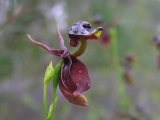


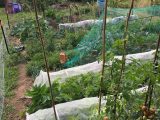
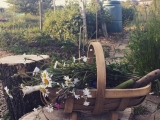
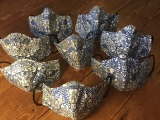


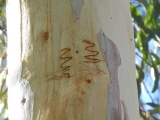

You must be logged in to post a comment.